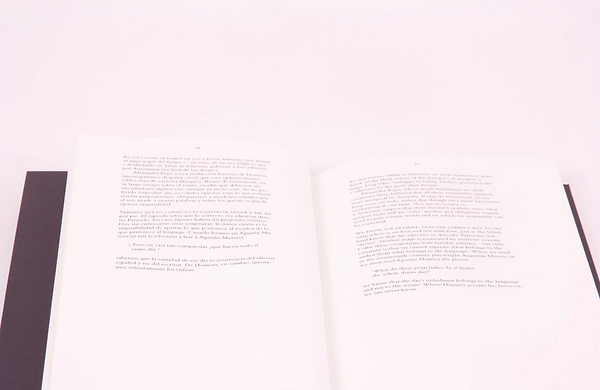



if fidelity
edition - MA final project
Today, every book is one click away. We can download classics like Shakespeare, Molière, or Homer, from everywhere in a minute. This is why, now more than ever, we need to question the legitimacy of what we read.
In his essay ‘Las versiones homéricas’ from Discusión (1932), J.L. Borges writes about the many different versions of Homeric texts: ‘Which of these many translations is faithful? the reader might ask. I repeat: none or all of them’. We can understand that depending on our criteria, either all or none of them are faithful.
The translator acts like an author, and, every author writes with a goal in mind that turns their writing into a subjective work. In the same way, readers also have goals in mind as they read a piece; they have to consider the writer’s, the translator’s, and the editor’s goal when they read any text. The aim of If fidelity, is to have the reader acknowledge the evolution of a text, but also to have him question its authorship, highlight the contribution of translators, editors, and readers.
In order to do so, If fidelity offers to its English speaking readers not only a first reading of Las versiones homéricas in English, comparing it to its original, but also an edited version of the same text, to finish with, as well as a contextualization of the content Borges is approaching with complementary information on their writing context.
MA final project at London College of Communication.
Special thanks to Lisa Liotta and Gabriel Andoni Montoro Barrenechea for the translation work. Published in A Line Which Forms a Volume (#1).
adobe indesign / adobe photoshop / riso printing / book binding



